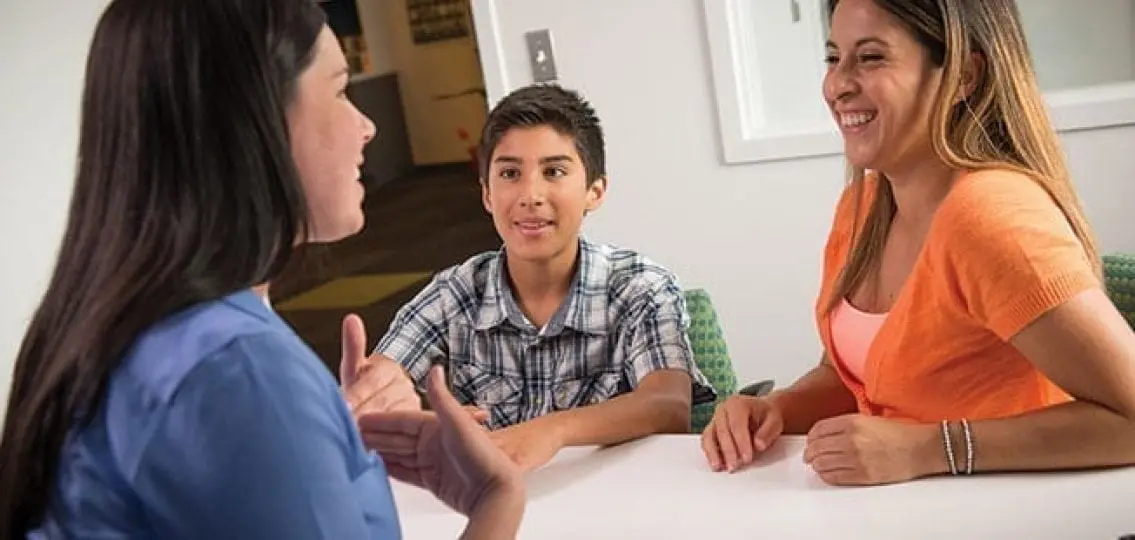From kindergarten on, parents wonder, “What do my kids do there all day?” As they grow, the worries compound. Cyberbullying. Grades. Friendships. College prep. The concerns feel endless. As a teacher of eight years and a parent to three sons, I get it. Parents crave more information about their kids.
As an educator, this is what I wish parents knew about the daily life of most teens at school:

What Teens Reveal About Themselves at School:
1. They speak a foreign language.
I’m talking about teen slang—not the class they’re taking for graduation credit. Two years ago, “That’s cold” was a good thing meaning hot, cool, or awesome. Last year, I grappled to understand the usage of “tea,” meaning gossip. We, the teachers, parents, and other grownups in your teen’s life, aren’t supposed to understand. Teens establish themselves, and their identity, as generations before them have, through a language all their own. And they don’t want you to learn it, know it, or use it. So don’t try.
2. They can detach from their phones—and they are brilliant when they do.
As schools across the country debate cell phone use in school, parents don’t have an accurate idea of how much time students are spending on their phones at school. Is it during learning time? Are they just Snapchatting at lunch? While the answers vary, the classrooms that are able to get them to detach for 50 minutes are seeing astonishing results. Teens have magical, intuitive, ground-breaking ideas and conversations that we don’t get to hear about when they are hiding behind their phones.
3. They feel deeply.
I’m sometimes privy to a side of teens that their parents don’t see. I see kids struggle, work through it, adapt and adjust, sometimes in the span of one class period. Hopefully your teen has trusted adults at school. Instead of asking your teen how they are doing, find out who their point people are. Ensure they are utilizing these “safe places,” whether it’s eating lunch with two close friends in the band room or checking in with a counselor weekly to diffuse academic stress. It’s not your job to know exactly what they are saying to these people, just that these people exist for your child, helping them feel supported and seen in a sea of students.
4. They worry about their future (almost) as much as you do.
I hear things like, “I have no idea what I’ll major in” or “My mom wants me to study law but I’m doing photography.” It’s on their minds, maybe not quite as much as the looming tuition bills are on the minds of many parents, but they do care. They are scared about their futures, and they don’t see a clear path forward as society unfairly expects them to at such a young age. Ask your teen’s teachers, “What does my child say about their plans for the future?” That undeclared major you are stressed about may mean they aren’t ready to establish their true passion yet. Don’t be the parent that forces them to choose prematurely, only then to change their mind three years into a college degree.
5. Their friends create identity and self-esteem.
For teens, friends are their life. The worst thing I can do as a teacher is steal their four minutes with their friends in the hallway between classes. A compliment from a friend can keep a teen beaming into the class period, and a negative comment can tear them down for days. The loss of a friend is a big deal for a teen and sparks a grieving process. Validating the deep, emotional significance of friendships to your teen can go a long way to making them feel understood this school year.
6. They are starving!
If you think your teen is independently packing enough food for the day, think again. I am constantly stowing snacks in my cabinets because teens are always ravenous. While some families do struggle to have enough food to send, other kids are just not taking the initiative to prepare for the day. They eat their lunches after second period and then start trolling for food by fourth period. Help them plan out a morning snack, a lunch and an after school snack. It’s a life skill they need and it doesn’t have to be fancy. I had a kid pack three sandwiches each morning and eat one every couple of hours.

There are teachers who love your child. It sounds cliché and some parents may not believe it, but it’s true. We didn’t become teachers to increase SAT score, learn teen slang, or prepare teens for the Ivy League. We are here to build up your child and help them grow into capable young adults—just like you are.




